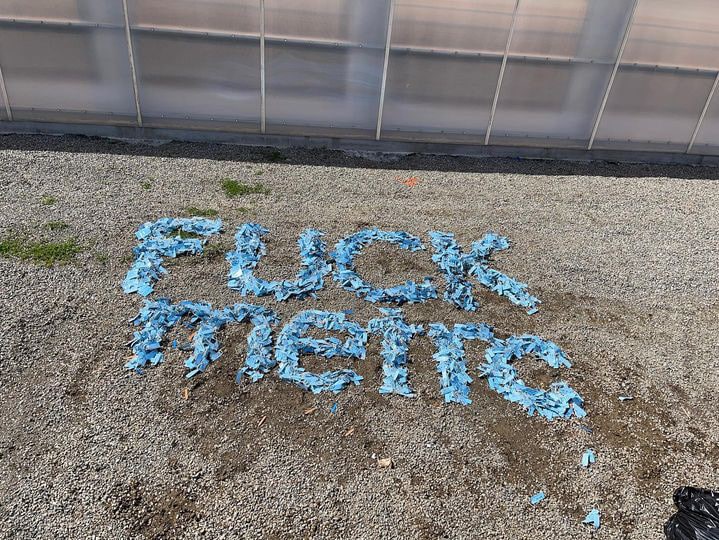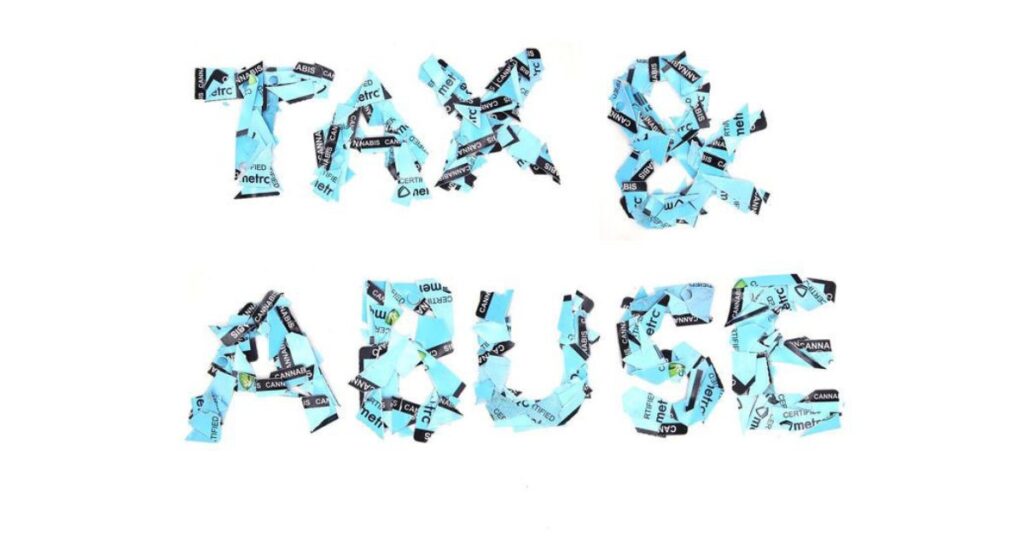California’s longstanding struggle to maintain a secure and efficient plant identification program for cannabis plants has been an ongoing issue since day one. The system, known as METRC, is run in California by the Department of Cannabis Control (DCC) and provides tracking services for states across the United States. However, operators have had numerous issues with this program since its inception due to tags being both expensive and wasteful.

In response to this ongoing problem, the California legislature recently sent a bill to the Governor that could change how marijuana plants must be tracked in a way that could potentially help promote environmental sustainability by eliminating the use of single-use plastic tags. The bill is known as Senate Bill 622 (SB 622), brought forward by Sen. Ben Allen (D), and it passed both chambers unanimously since its inception in March and is now on to the Governor’s desk for signing.
METRC In California
The California cannabis industry began using the METRC system in 2018 as a requirement for operators to track their plants from seed to sale. However, the program came with numerous issues due to tags being both expensive and wasteful. The program requires all plants to be tagged with a single-use plastic identifier, ultimately ending up in landfills after use. This has been an ongoing issue for operators due to the massive amount of waste and cost. Yet, METRC has had no desire to fix it or find alternative solutions as the program provides them with a guaranteed contract with each state that supplies consistent residual income.
SB 622
SB 622 is meant to address the current process of how the unique identification program for cannabis and cannabis products is currently tracked, and it should be of note that the legislation itself doesn’t give an idea of how it will be changed. It says, “This bill would require the unique identifier to be recorded in a manner as determined by the department by regulation.” Many believe the single-use application of these tags is entirely wasteful and unnecessary.
Recently, in an article by Marijuana Moment, Tiffany Devitt, head of regulatory affairs at the vertically integrated cannabis company CannaCraft, told Marijuana Moment, “We eagerly anticipate Governor Newsom’s signature on SB 622, drawing attention to the impact of the past five years: the state has used between 200 and 250 million plant tags, resulting in over 1 million pounds of plastic waste,” she also added that “Astonishingly, this waste carries a price tag of approximately $15 million annually, as the state of California purchases these tags and distributes them to cannabis farms.”
Benefits of Eliminating Single-Use Plastic Tags
If SB 622 is signed into law, it could benefit the industry in multiple ways. By removing single-use plastic tags from cannabis plants, the state will be able to save a great deal of money that would have gone towards purchasing and distributing these tags. In addition, this could promote environmental sustainability by eliminating the production and disposal of millions of pounds of plastic waste. This could also benefit operators by eliminating the need to manually tag and count every plant, which can be a long and tedious process.
The impact of SB 622 could be felt by the entire cannabis industry, from operators to consumers. If passed, it will not only save money and help promote environmental sustainability, but it could also speed up the process of tracking plants from seed to sale. Consumer safety would remain a priority as well, as the unique identifiers for each plant or product will still need to be recorded in a secure and compliant manner.

While it remains undetermined exactly how SB 622 will change the current process of track and trace for cannabis plants and products in California, if passed, the legislation has the potential to help promote environmental sustainability and lower the overhead costs for cannabis businesses throughout the state. This could be a game-changer for operators in California, as it would provide them with an alternative way to track and trace their plants without manually tagging each one with wasteful single-use plastic tags.
We will have to wait and see if SB 622 is signed into law and what changes come with it, but one thing is for sure—California needs to find an alternative solution for its plant identification program.
Only then can operators in the state be assured of a more efficient and sustainable way to track and trace their plants that could help reduce the overall costs associated with running a business. California legislators have taken a step in the right direction with SB 622, and we await Governor Newsom’s signature on this crucial piece of legislation.
Featured image courtesy of Greg Welch IG: thankyoufortoking.c0m
Keep updated on all the latest news and updates in the Cannabis industry here at Beard Bros Pharms by signing up for our Friday Sesh Newsletter here. Always Dank and Never Spam!
















